|
Hedge funds for beginners
|
 |
June 5, 2000: 11:08 a.m. ET
The ABCs of hedge fund investing -- and why you should be interested
By Staff Writer Jennifer Karchmer
|
NEW YORK (CNNfn) - To most investors, hedge funds remain a mystery.
You know they are complex investment pools open only to the very rich. And you know they involve a high level of risk. Beyond that, however, the definition gets fuzzy.
"I would say hedge funds are intimidating (to the average investor) because they're private and they don't have to disclose anything to you," said Jim Gillies, vice president and chief information officer for Hedgefund.net. Understanding hedge funds can be a daunting task because "they're very high-end sophisticated investment techniques," he added.
Hedge funds hit the headlines
Not until the high-profile bailout of Long-Term Capital Management two years ago did talk of hedge funds make its way from Wall Street trading desks to Main Street coffee shops.
But today -- as veteran Wall Street participants such as Julian Robertson and George Soros announce major shakeups within their hedge fund empires -- you're still scratching your head trying to make sense of strategies such as leveraging, short-selling and macro investing that can confuse even the most astute investor.
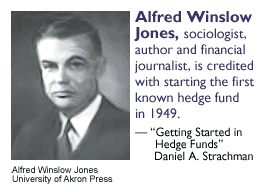
"When you have all this volatility in the market, people are naturally interested in what's going on," said Brian McQuade, co-founder of Hedgefundcenter.com. "When the press reports when a fund blows up, it's sensationalism, but some investors wonder: Is this going to hurt me? Are these hedge fund managers making bets that are going to affect me?"
If you suspect they are, your instincts are correct.
Because they can move billions of dollars in and out of markets quickly, hedge funds can significantly impact daily trading in equities and bonds, analysts say.
That means that if you're a mutual fund investor keeping tabs on your retirement account or a day trader betting on a favorite tech stock, you'll want to begin educating yourself on hedge funds and their movements.
Are hedge funds for me?
If you're planning for your retirement, chances are you've been investing through your employer-sponsored 401(k) plan or on your own through an individual retirement account, or IRA. In that case, you're already familiar with mutual funds, which are regulated by the Securities and Exchange Commission.
Hedge funds, on the other hand, are unregulated pools of money that strive to boost returns by using riskier strategies such as short-selling, or betting that a stock price will fall.
By leveraging, or using borrowed capital to increase investment return, hedge funds can boast substantial returns. For example, 209 of the most aggressive funds tracked by Hedgefund.net returned 86 percent in 1999, the same year the S&P 500 was up 21 percent.
However, when the bets go against the fund, the losses can be huge.
"Funds that are highly leveraged are risky and only pay off when the markets are up," McQuade said.
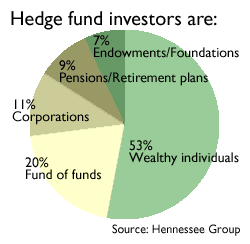 It's difficult for the average investor to break into hedge funds because the minimum investment requirements are so steep -- ranging from $500,000 to $1 million. It's difficult for the average investor to break into hedge funds because the minimum investment requirements are so steep -- ranging from $500,000 to $1 million.
Therefore, the typical shareholder tends to be either deep-pocket individuals or institutional investors such as foundations, pension funds, university endowments and corporations.
Under SEC guidelines, individual hedge fund investors must have a net worth of at least $1 million or an annual income of $200,000.
The rules are designed to keep less-sophisticated investors, those who may not understand the risks, at bay. Experts warn, however, that hedge fund activity can still have an effect on the value of their portfolio.
Long-Term Capital's repercussions
You might remember the collapse of U.S. hedge fund Long-Term Capital Management run by former Salomon Inc. Vice Chairman John Meriwether, the legendary bond trader.
LTCM roiled markets in 1998 when the fund made a bad bet on interest rates.
At one point, the hedge fund had returned up to 43 percent to its shareholders. But in August 1998, when Russia defaulted on its debts, LTCM wasn't prepared for the aftereffects of that crisis and couldn't pay back its own loans.
The Federal Reserve then stepped in to negotiate a $3.6 billion bailout plan. The fund ultimately paid back $1.3 billion to investors, but many on Wall Street -- not to mention Washington -- regarded the fund's near-collapse as a warning sign for high-flying hedge funds.
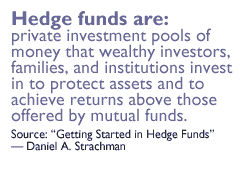
As a result, investment houses that lend to hedge funds became more conservative in how much leverage they would provide. In addition, the LTCM debacle forced fund managers to keep leverage levels under control and to hedge their bets much more carefully.
But it is widely believed that LTCM -- with leverage levels as high as 100-to-1 -- wasn't a typical hedge fund. Many aggressive hedge funds today leverage closer to 1.5-to-1, according to Gillies.
Even so, Razmig Bulujian, a hedge fund manager in Pasadena, Calif., says the collapse of Long-Term Capital Management was a turning point in the industry, breeding a new kind of investor who wants "to make sure the manager stays in the mandate (of the fund)."
Macro players tumble
More recently, the broad investment style known as "macro" -- which uses a variety of instruments such as stocks, bonds, commodities, currencies and futures -- has fallen out of favor.
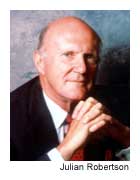
Hedge fund macro players Soros and Robertson used this strategy to build fund empires in the billions of dollars. This approach also contributed to their recent downfalls.
Robertson, Tiger Management's founder, announced on March 30 he was liquidating his funds and closing the doors on Tiger as his bets on value stocks backfired during the Nasdaq's recent roller coaster.
Just a few weeks later, Soros Fund Management, the world's largest hedge fund, revamped its flagship Quantum Fund amid steep losses in technology stocks and the departure of two top managers.
"When so-and-so is closing up shop, it's a reflection of what's happening in the investment world," McQuade said. "It's not that the hedge fund world is coming to an end."
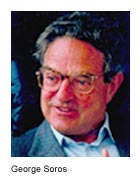
Barry Colvin, director of research at Tremont Advisors in Rye, N.Y., said the industry is in the midst of an evolution as smaller sized funds garner attention.
Keeping tabs
The bottom line for Main Street investors: Follow hedge fund activity, but it's impossible to prepare for gyrations the funds can create in the market, Gillies notes.
"If you're a little investor and you're worried about (George) Soros liquidating Qualcomm positions and taking down the stock with it, there's nothing you can do about it," he said.
At the same time, however, investors can and should learn lessons from the big traders.
"Stay diversified, stay educated and don't try to time the market based on what professional investors are doing," said Hedgefundcenter.com's McQuade. "By the time information about what these professional investors are up to is reported, its safe to assume they are working on a different strategy." 
-- Staff Writer Jennifer Karchmer covers hedge funds for CNNfn.com. Click here to send her your comments and questions.
|
|
|
|
|
 |

|

